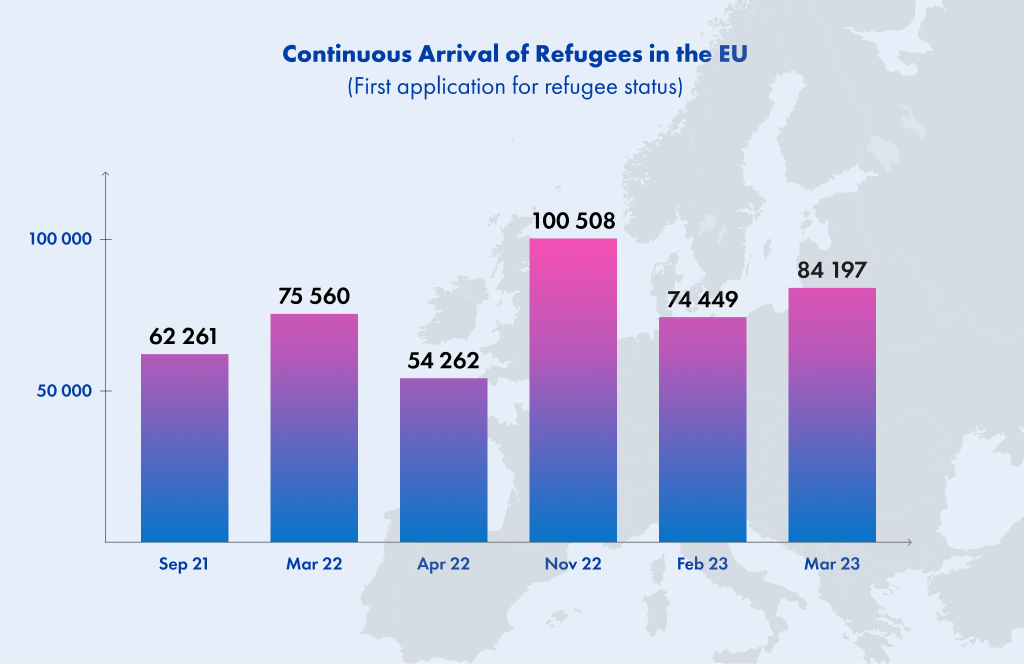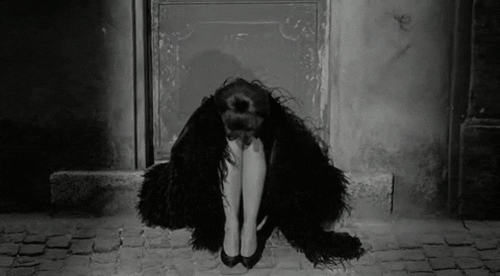Issue #133
Guten Morgen! (#betterlatethennever) Once again, it’s the weekend, so that means Krautshell time. This week, we had a series of ups and downs in the world of German & European Politics. One thing is for sure: it’s crunch time and politicians are racing to sign off on dossiers before the summer deadline. This week we bring you a tribute to Italy’s most famous politician, Silvio Berlusconi, a snapshot of AI regulation in the EU, and a peek into Germany’s first ever national security strategy. Finally, check out Szilvia’s WOOM for a somewhat different obituary. Anna Szilvia AI Regulation: Surprisingly Harmonious in the European Capital It’s not very often that regulatory developments on the European side of the Atlantic make headlines in the New York Times, but when it comes to AI, the topic is hotter than flip phones in the early 2000s. This week, the European Parliament passed its draft version of the AI Act, which will be the basis for negotiations with the EU Member States (Council), who also have their own draft version, to find a final compromise text. One major point of contention will be around exemptions and prohibited practices. Specifically, the Member States have called for an exemption from the rules for national security, defense, and military purposes – the Parliament is not on board. Also, the Parliament has introduced a laundry list of “prohibited AI practices” including biometric identification and predictive policing. Also, as the Council finalized its position in December – back when ChatGPT & co. were less prominent – general purpose AI was rather an afterthought. Now, the Parliament calls for clear rules around this category as well, such as clear labeling of AI-generated content and transparency on data that trained AI systems. Just a gentle reminder that time is of the essence. What struck us: Normally, when the EU crafts tech regulation, the response from the Google, Microsoft, and co. gives you the impression they will never earn another penny. This time, Big Tech is relatively composed, with DigitalEurope, the EU’s leading digital trade association, titling its response to the Parliament vote “A text we can work with.” Of course, they’ll want to see some more changes – but you can sense something different in the air this time. Might companies actually mean it when they say they want clear rules on AI? We’ll keep you updated on how further negotiations go, and how the law will affect other regions of the world. Berlusconi:Silvio Berlusconi’s Last Laugh: Farewell to a Colorful Character This week, Silvio Berlusconi died at the age of 86. In the last forty years there has not been a day when his name has not been evoked on TV, in newspapers, in Parliament, in bars or at the stadium. Not only has he been the central political figure of the last few decades he was also a media tycoon, an icon of popular culture, one of the richest men in Italy and president of the world’s most successful soccer club of the 80s and the 90s – AC Milan. Outside Italy, many observers were left bewildered by the – for Italian standards -sheer political immortality of the “cavaliere” and its appeal to Italian voters. The journalist Beppe Severgnini once summarized his success formula: “he represents a kind of synthesis of all the habits, vices and virtues of the Italians. He has an incredible ability to understand the Italians’ social fabric. He forgives our sins and does not give moral sermons. He makes us his accomplices.” At the same time, he has always been one of the most controversial political figures in the post-war era. There is an English Wikipedia article that only deals with his controversies and, well, just the section “jokes, gestures and blunders” is probably longer than most MP’s entire article. Apart from his “Bunga Bunga” scandals, he has faced court over bribery, tax evasion, connection to the Mafia and defamation. On one hand his fans sang, “Thank Goodness There’s Silvio,” and portrayed him as an idol that modernized Italian politics and boosted economic growth, on the other hand his adversaries saw him as the very personification of the country’s political and cultural decline, a vulgar macho who loved to showcase his bromances with dictators like Vladimir Putin or Muammar el-Qaddafi or simply a dodgy businessman who entered politics to protect his business interests. As the New York Times wrote: he definitely left “an imprint, or a bruise, on almost everything he touched.” No matter which group you belong to, there’s no doubt he left behind a profound impact on the political landscape of Italy. Farewell, Silvio. Better Late than Never Last Wednesday marked a milestone in German security politics as the federal government presented the country’s first-ever National Security Strategy. You may be surprised, but it took a mere 74 years for Germany, currently the world’s fourth-largest economy and the largest member state in the EU, to take on strategic responsibilities beyond its renowned focus on exporting high-quality goods. In recent years, even Germany has recognized the need for a more active role. Consequently, the new government announced its intention to unveil a National Security Strategy within one year of assuming office. However, due to significant differences within the government, this presentation was postponed multiple times. Finally, after a six-month delay, the strategy has been completed. The strategy highlights the necessity of an integrated security approach, requiring collaboration among all relevant actors at various levels, including federal, state, local, and private companies. This collaboration encompasses a wide range of fields such as infrastructure, military, cyber, food, and medical security. One aspect is for example the coordination of all international projects undertaken by German Federal Ministries – what a mind-blowing idea. Additionally, the strategy underscores the importance of the transatlantic partnership. Aligned with Chancellor Scholz’s proclamation of a “Zeitenwende” (a pivotal moment), the Federal Government wholeheartedly commits itself to NATO’s objective of allocating 2% of GDP to defense spending. This commitment is urgently needed to address the Bundeswehr’s challenges—a seriously ill-equipped army lacking sufficient operational readiness. Regarding China, the strategy offers limited information, essentially highlighting the commonly acknowledged triad of China as a partner, competitor, and system rival. However, a comprehensive China strategy will be developed by the government later this year—an unprecedented endeavor. Nonetheless, it is worth noting that this undertaking requires time and is already facing delays. Source: euaa.europa.eu Died to live again This week, Silvio Berlusconi died, giving him one last shot at being alive in the news. Clearly, Berlusconi left an indelible impring on Italian politics and society, but for the rest of us, he sort of disappeared from our radars after being kicked out of his PM seat in 2011. His actual death put him in the breaking news section for one final, fleeting day. To be honest, I am no expert on Italy … (so you should consume these lines with caution). Therefore, I plunged headlong into this week’s (international) obituaries to understand what Berlusconi bestowed upon Italy. Given the big state funeral, I expected a lot of intriguing political facts hiding behind the controversial and sometimes daunting surface. But – surprise – these pieces reveal little about Berlusconi’s tangible politics. Perhaps that’s because there isn’t a single law or reform worth mentioning. The changes that Berlusconi brought to Italy rooted in his recklessness and endless self-confidence, even after all his scandals and leading Italy to the brink of bankruptcy. As the FAZ put it, for most Italians, Berlusconi was an imperfect person, like the rest of them/us, making him easy to relate to. Plus, “Berlusconi loved his countrymen and his country as they were” rather than seeking policies to change them. To put it bluntly: Berlusconi was a populist. In fact, he was the prototype for many later populists in Europe and beyond. And while Berlusconi might have truly loved Italians as they were, he also loved his power and resorted to deceit, lies or law-breaking if necessary to keep it. Yet, Berlusconi was never really seen as a threat to Europe – at least not on his purpose (#Eurozone). He not only de facto penned the “Populism for Dummies” handbook for the next generation of like-minded political rabble-rousers, but also lulled us into a false sense of security when being chillingly entertaining. With Berlusconi, the last “harmless” populist died. It’s time to keep our eyes peeled. Issue #133


FIRST, SOME SOLID INTEL:
TAKE A BREAK, GIVE YOUR EYES A REST.

LONG STORY SHORT:
WHAT’S ON OUR MINDS:





